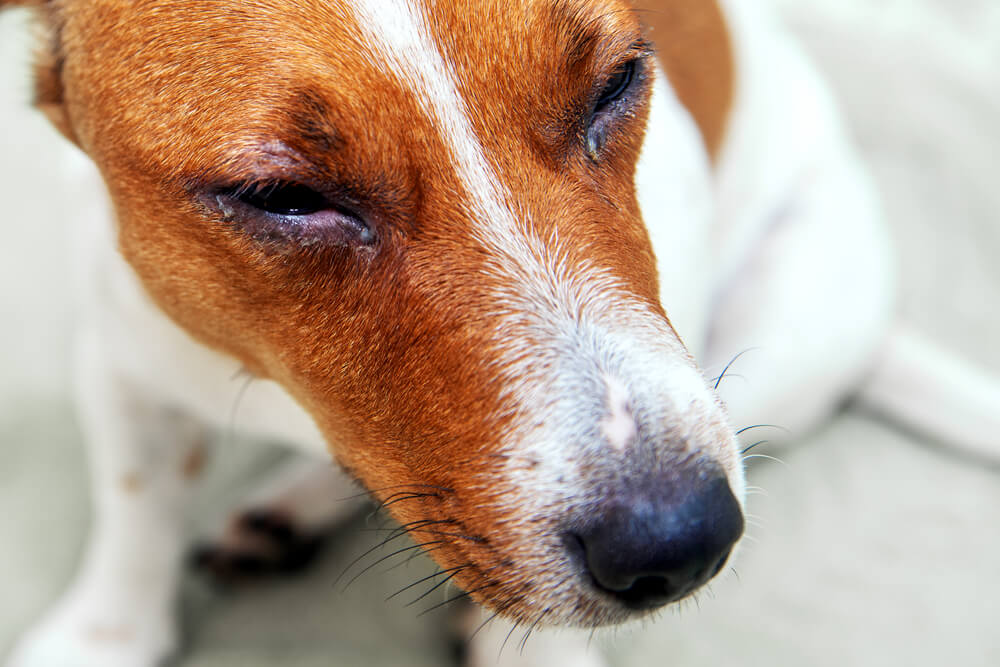
Annual veterinary wellness examinations are crucial to your pet’s overall health and wellbeing, because during these visits, our Towne Centre Animal Hospital team can identify medical issues early in their course and treat them more efficiently and effectively. However, a new problem could crop up anytime, necessitating a visit. While you may be tempted to wait until your pet’s next annual exam, we recommend scheduling an appointment with our team if your pet exhibits any of these common illness signs.
#1: Vomiting and diarrhea in pets
Vomiting and diarrhea are signs that your pet’s gastrointestinal (GI) tract is not working as it should, which could indicate an infection, parasites, a blockage, or a problem with their diet, immune system, liver, or kidneys. Because these signs have a range of causes and could lead to dehydration or electrolyte imbalances, you should always seek veterinary attention if your pet has repeated episodes in a short time frame, blood in their vomit or stool, or sporadic recurring vomiting or diarrhea episodes.
#2: Changes in eating or drinking habits in pets
Pets are creatures of habit, and when those habits change, a problem is often afoot. A pet with a diminished appetite or thirst is likely sick or in pain, and you should schedule a visit with our Towne Centre Animal Hospital team as soon as possible so we can determine the cause. Increased appetite and thirst are often linked to chronic endocrine or organ disorders that alter metabolism and require long-term treatments to control.
#3: Urinary accidents or increased urination in pets
Disorders that increase thirst, such as kidney disease or diabetes, often also increase urination volume and frequency. Accidents in the house or outside the litter box can also indicate a primary urinary problem, such as infection or bladder stones, or could point to an underlying behavioral issue. No matter the cause, these signs require urgent veterinary attention to prevent the condition from worsening.
#4: Energy level changes in pets
A sudden decrease in your four-legged friend’s energy and zest for life indicates a health problem. However, waning energy doesn’t provide much information about the cause. To find the reason for your pet’s lack of energy and provide effective treatment that gets your pet back on track, our Towne Centre Animal Hospital team will use a combination of exam findings, laboratory test results, and imaging.
#5: Bad breath in pets
Contrary to popular belief, doggy breath isn’t normal and usually indicates painful dental disease. To treat your pet’s dental disease, our team will perform an anesthetized professional dental cleaning and tooth extraction as needed. In addition, we will recommend an at-home oral care plan for you to implement. Uncontrolled diabetes, kidney disease, or acid reflux could also be causing your furry pal’s bad breath.
#6: Itchy skin or ears in pets
Allergies are a common cause of pets’ itchy skin and recurrent ear infections or inflammation. Unfortunately, over-the-counter (OTC) antihistamines or other treatments don’t provide relief for allergic pets. However, our Towne Centre Animal Hospital team can implement a multimodal treatment strategy to control allergy signs long term. Our team must also rule out parasites, such as fleas or ear mites, and infections.
#7: Coughing or sneezing in pets
Coughing and sneezing are common results of an upper respiratory infection, which should typically resolve in a few days without treatment. However, if your pet is coughing or sneezing for longer than a week, or they have other concerning signs, such as poor appetite or eye discharge, your furry pal should have a veterinary examination so our team can rule out a more serious issue, such as heart disease or pneumonia.
#8: Limping or mobility changes in pets
A pet can sustain a minor sprain or strain injury during play, but limping that lasts more than a few days or causes your furry pal significant pain or distress could indicate a more serious injury such as a broken bone or torn ligament. Spinal changes, autoimmune disease, infections, or cancer could also cause limping, and our Towne Centre Animal Hospital team should examine your pet sooner rather than later.
#9: Unexplained weight changes in pets
A pet’s weight change can be difficult to recognize when they happen gradually, and often occur as a result of feeding too much, too little, or the wrong diet. Sometimes weight changes are more serious, so if your pet can’t seem to keep weight on or continues to add pounds despite going on a diet, schedule a visit with our team.
#10: Squinting or red eyes in pets

Most people mistakenly assume their pet’s red, irritated, or squinty eyes are caused by seasonal allergies. However, the problem is usually more serious, such as dry eye, corneal ulcer, or glaucoma. Eye problems can be painful or threaten your pet’s vision, so schedule a visit with our team as soon as ocular signs manifest.
Your pet depends on you to identify and address health problems because they cannot advocate for themselves. Schedule an appointment with our Towne Centre Animal Hospital team if your furry pal exhibits any of these common illness signs, or any other concerning change in their behavior, habits, or appearance.
